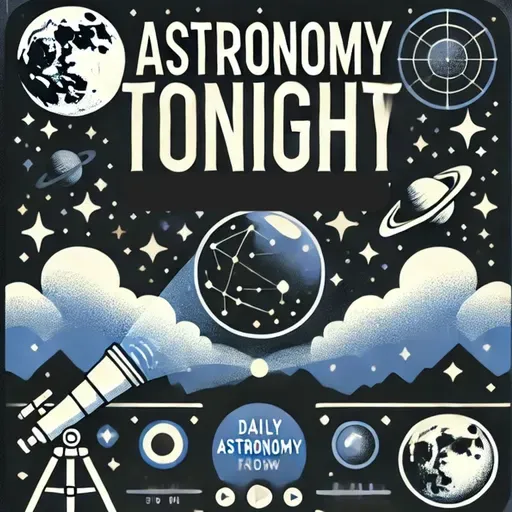
About
This is your Astronomy Tonight podcast.
On September 8th, 1966, something truly out of this world happened - the premiere of Star Trek: The Original Series! While not strictly an astronomical event, this iconic show has undoubtedly shaped our collective imagination about space exploration and the wonders of the cosmos.
Picture this: It's 1966, and television viewers are suddenly transported to the 23rd century aboard the USS Enterprise. Captain Kirk, Mr. Spock, and Dr. McCoy are beaming down to strange new worlds, encountering alien life forms, and boldly going where no one has gone before. The show's visionary creator, Gene Roddenberry, gave us a glimpse of a future where humanity has overcome its earthly squabbles and set out to explore the final frontier.
Star Trek's impact on astronomy and space science cannot be overstated. It inspired generations of scientists, engineers, and dreamers to look up at the stars and wonder what's out there. The show's fictional technologies, like warp drive and transporters, have spurred real scientific research and debates. NASA even named its first space shuttle "Enterprise" in honor of the show!
But Star Trek did more than just inspire; it also predicted or influenced many real-world technologies we use today. Think about it - those handheld communicators? They look an awful lot like our modern smartphones. And let's not forget about tablet computers, voice-activated computers, and even teleconferencing - all of which appeared on the Enterprise decades before becoming reality.
So, as we celebrate this date in "astronomical" history, let's raise a glass of Romulan ale (or perhaps some synthehol) to Star Trek, a show that continues to inspire us to reach for the stars and imagine a brighter future for humanity among the cosmos.
Don't forget to subscribe to the Astronomy Tonight podcast for more celestial celebrations and cosmic contemplations. If you want more info, you can check out Quiet Please dot AI. Thank you for listening to another Quiet Please Production. Live long and prosper!
On September 8th, 1966, something truly out of this world happened - the premiere of Star Trek: The Original Series! While not strictly an astronomical event, this iconic show has undoubtedly shaped our collective imagination about space exploration and the wonders of the cosmos.
Picture this: It's 1966, and television viewers are suddenly transported to the 23rd century aboard the USS Enterprise. Captain Kirk, Mr. Spock, and Dr. McCoy are beaming down to strange new worlds, encountering alien life forms, and boldly going where no one has gone before. The show's visionary creator, Gene Roddenberry, gave us a glimpse of a future where humanity has overcome its earthly squabbles and set out to explore the final frontier.
Star Trek's impact on astronomy and space science cannot be overstated. It inspired generations of scientists, engineers, and dreamers to look up at the stars and wonder what's out there. The show's fictional technologies, like warp drive and transporters, have spurred real scientific research and debates. NASA even named its first space shuttle "Enterprise" in honor of the show!
But Star Trek did more than just inspire; it also predicted or influenced many real-world technologies we use today. Think about it - those handheld communicators? They look an awful lot like our modern smartphones. And let's not forget about tablet computers, voice-activated computers, and even teleconferencing - all of which appeared on the Enterprise decades before becoming reality.
So, as we celebrate this date in "astronomical" history, let's raise a glass of Romulan ale (or perhaps some synthehol) to Star Trek, a show that continues to inspire us to reach for the stars and imagine a brighter future for humanity among the cosmos.
Don't forget to subscribe to the Astronomy Tonight podcast for more celestial celebrations and cosmic contemplations. If you want more info, you can check out Quiet Please dot AI. Thank you for listening to another Quiet Please Production. Live long and prosper!